The Vice President of Ain Shams University receives the jury of the "Best Environmentally Friendly University" competition
Within the framework of the keenness of the Ain Shams University administration, headed by Prof. Mohamed Diaa Zain El-Abedeen, President of the University, to transform into a "green... smart... sustainable university" and work within the country's sustainable development goals, Prof. Ghada Farouk, Vice President of the University for Community Service and Environmental Development Affairs, received the jury of the "Best Environmentally Friendly University" competition, which is organized by the Ministry of Higher Education and Scientific Research and the Supreme Council of Universities.
Prof. Amani Shaker, Vice President of Kafrelsheikh University for Community Service and Environmental Development, chaired the jury, which included members from the Building Research Center, the New and Renewable Energy Authority, and members from a civil society organization concerned with environmental issues.
At the beginning of the meeting, Prof. Ghada Farouk welcomed the jury members and stressed the university administration's keenness to transform into a "smart, sustainable green university." She pointed out the long history of Ain Shams University, which will celebrate its 75th anniversary next year, which poses the university administration with the challenge of transforming towards achieving sustainability compared to newly established universities.
Her Excellency confirmed that the university has taken major steps to govern the use of electricity, water, solid waste, transportation within the university, community standards, risk management, and carbon emissions measurement. Efforts have been combined within the university's various departments to achieve this.
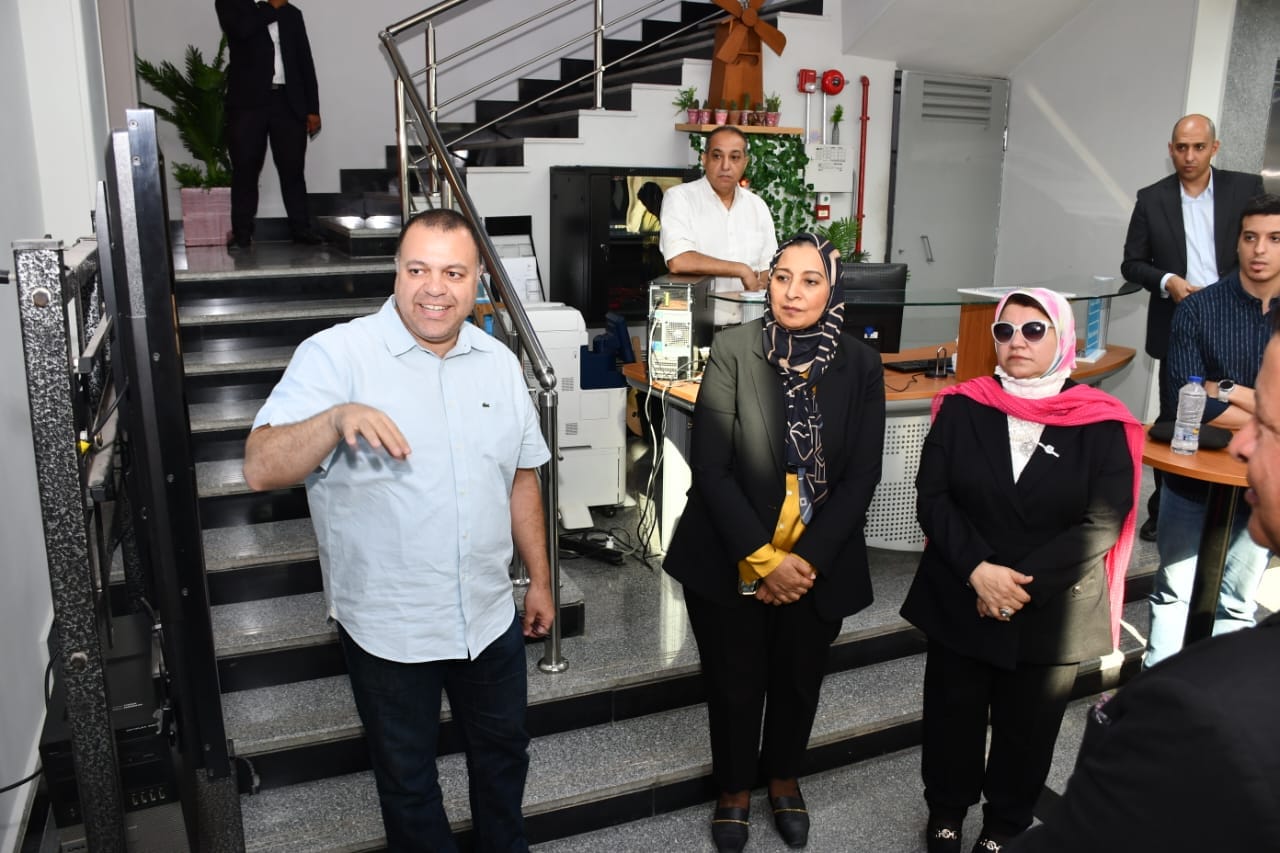 |
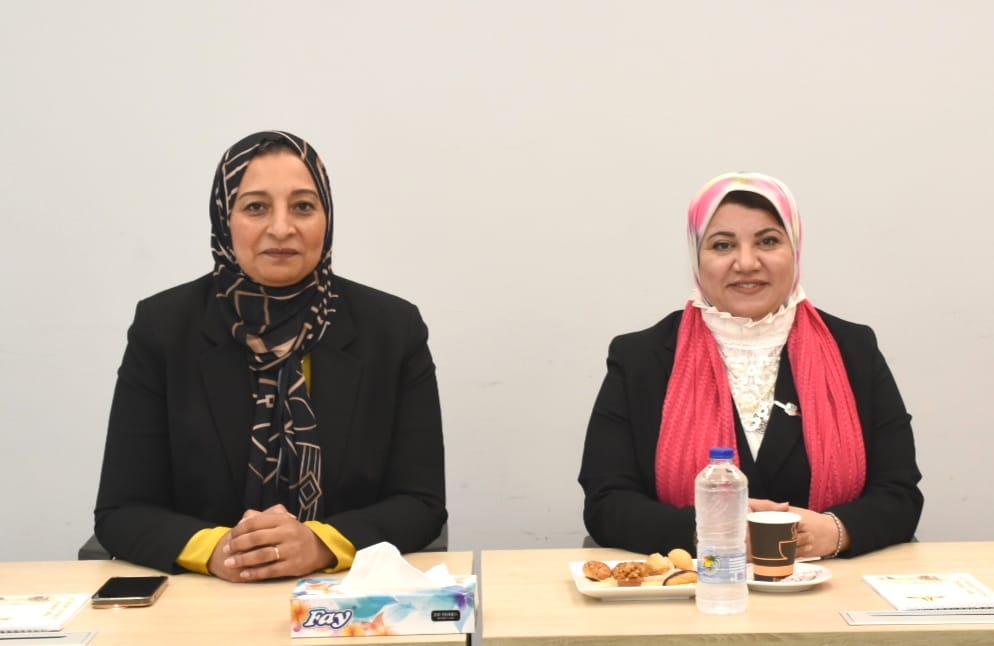 |
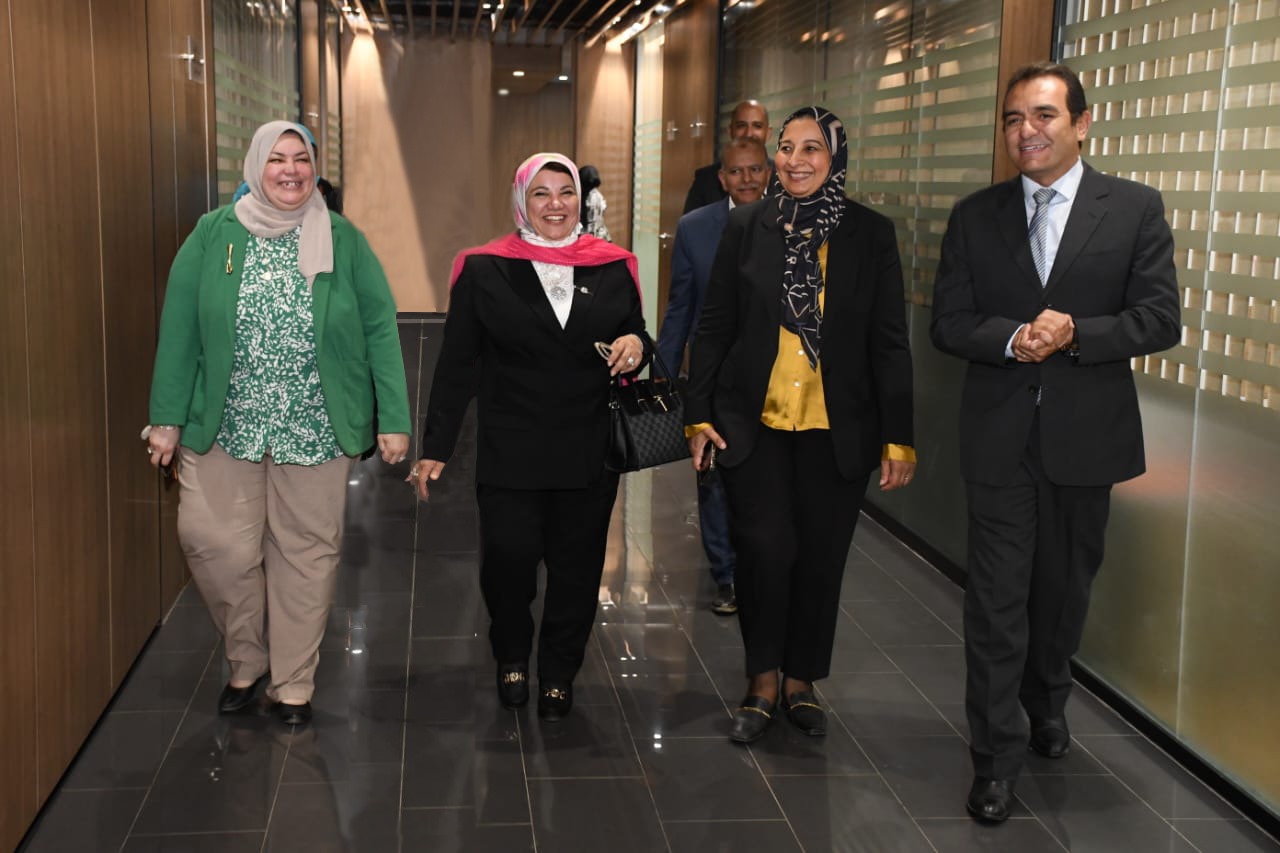 |
||
In the presence of the members of the working team from Ain Shams University: Prof. Shahira Samir, Executive Director of the International Collaboration Sector, Prof. Mona Abdel Aal Al-Zahri, Director of the Education Development Department, Prof. Rasha Ismail, Director of the Electronic Portal Department, Dr. Ahmed Al-Banna, Director of the International Classification Department, Dr. Ahmed Al-Awady, Director of the Center of Excellence for Sustainability, Prof. Mohamed Saeed, Director of Nanotechnology Research. The working team reviewed the steps that were implemented accurately to achieve sustainability by reducing the use of papers and converting paper tests to electronic tests, shedding light on the development of the university's electronic portal and the various platforms on it and providing information that serves the sustainability axes, which are "the Sustainable Development Goals Platform, the Center of Excellence for Sustainability Platform, the Scientific Research Platform for Sustainability, Sustainability Reports and Statistics, International Sustainability Classifications, Development Caravans, Literacy, Awareness Campaigns, the Electronic Bulletin for the Environment and Sustainability, and a Digital Platform for Listing Water and Electricity Bills". The team also explained the impact of these efforts on the university's progress in global classifications and its leadership in local classifications.
The team made a field visit - using electric cars inside the main campus - to the International Cooperation Sector and the Nanotechnology Building, during which Prof. Mohamed Saeed, General Supervisor of Nanotechnology Projects and the University's Nanotechnology Center, highlighted nanotechnology research that serves sustainability, including: producing and developing new treatments for cancer, producing and developing the electronics and solar cell industry and increasing their efficiency, eliminating pollutants, and treating all types of wastewater using nanotechnology to provide pure water used in irrigation, producing nanoscale optical sensors for early diagnosis of cancer, and also producing new vaccines and antibodies for some diseases using nanotechnology.
The tour also included inspecting the laboratories building at the Faculty of Science, the networks building, the Saffron Palace Museum, the Egypt Center of Excellence for Solid Waste Management, the Center of Excellence for Energy, Luban Workshops, and the Acoustics Laboratory at the Faculty of Engineering.
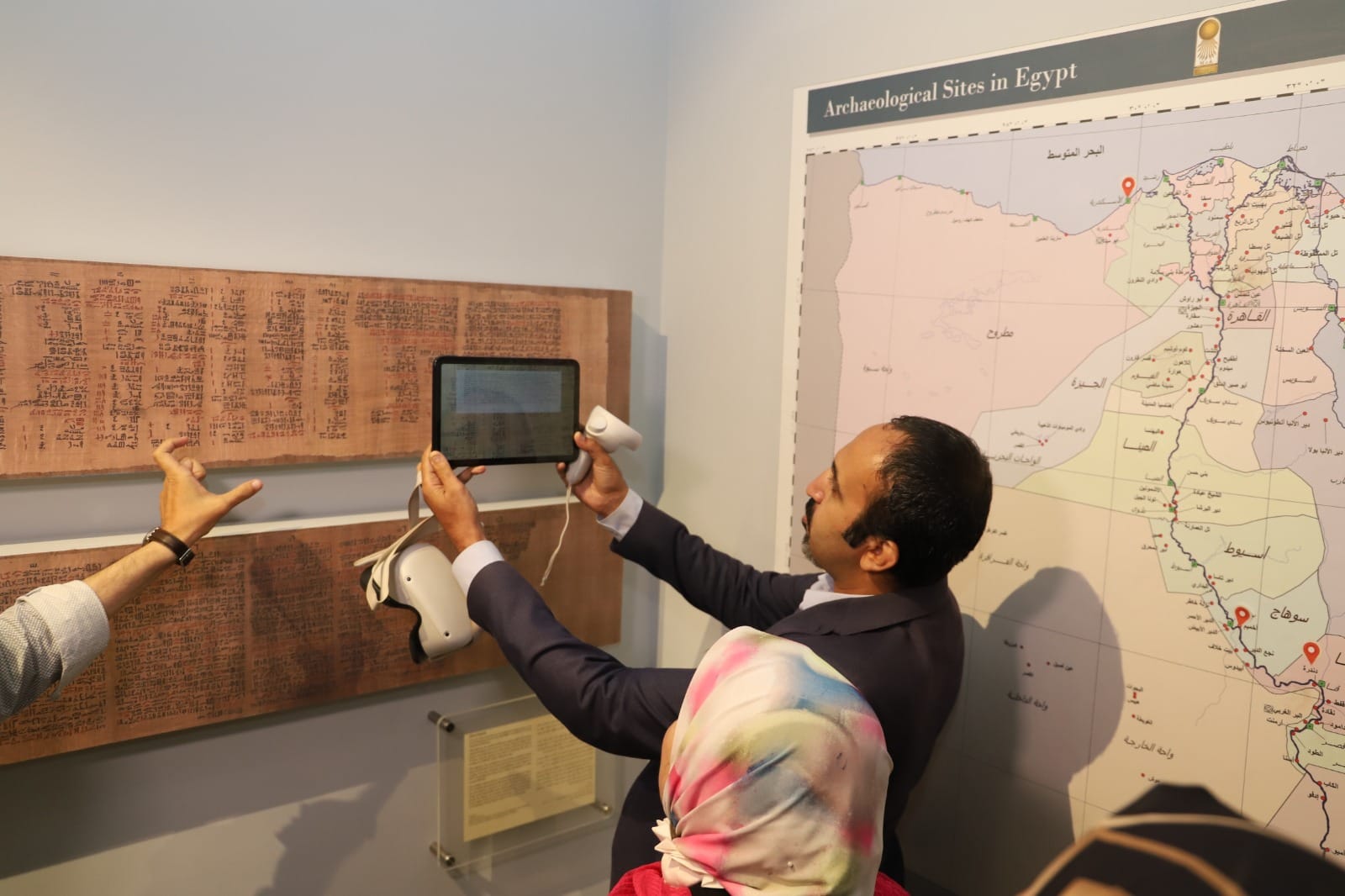 |
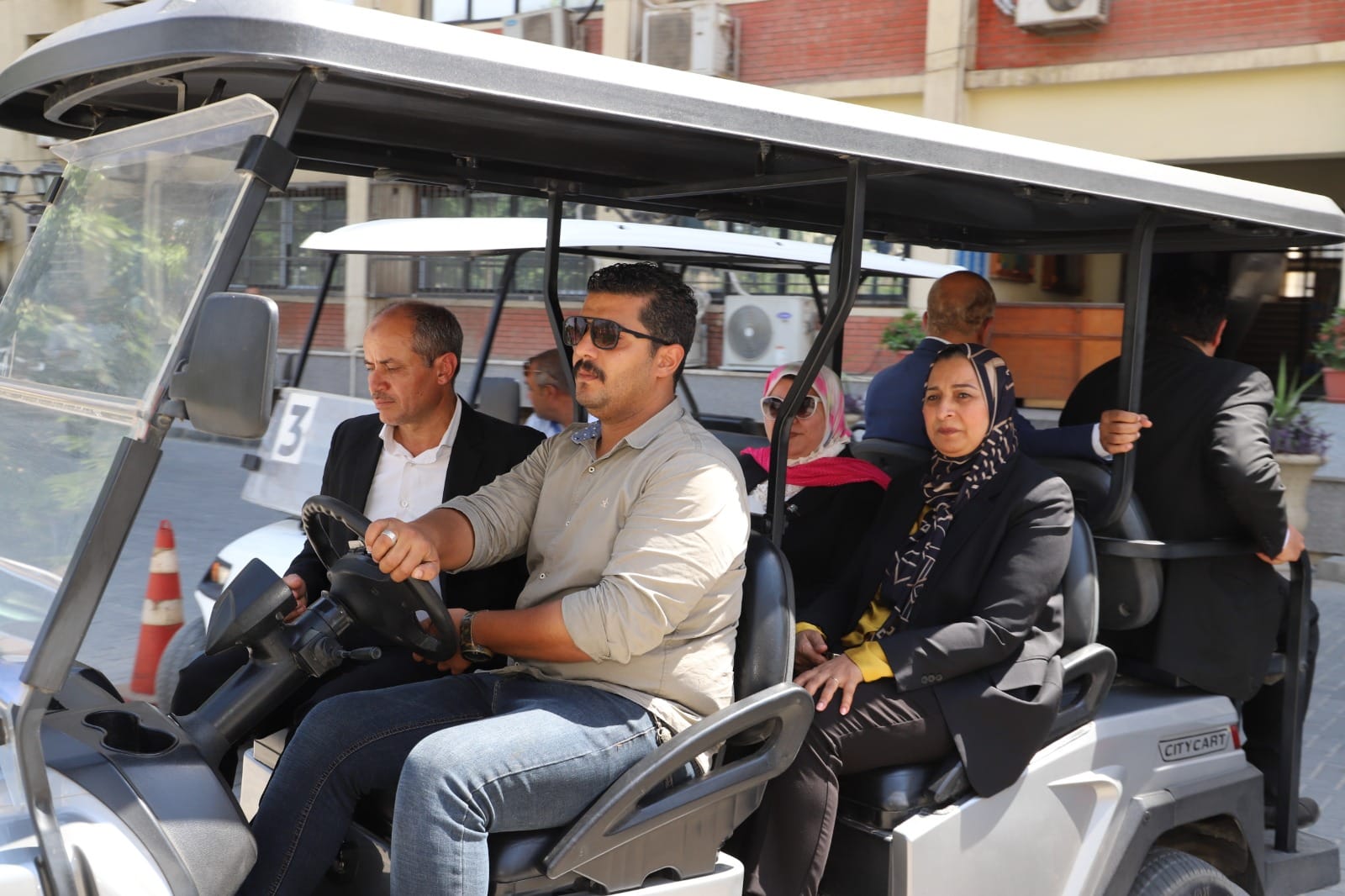 |
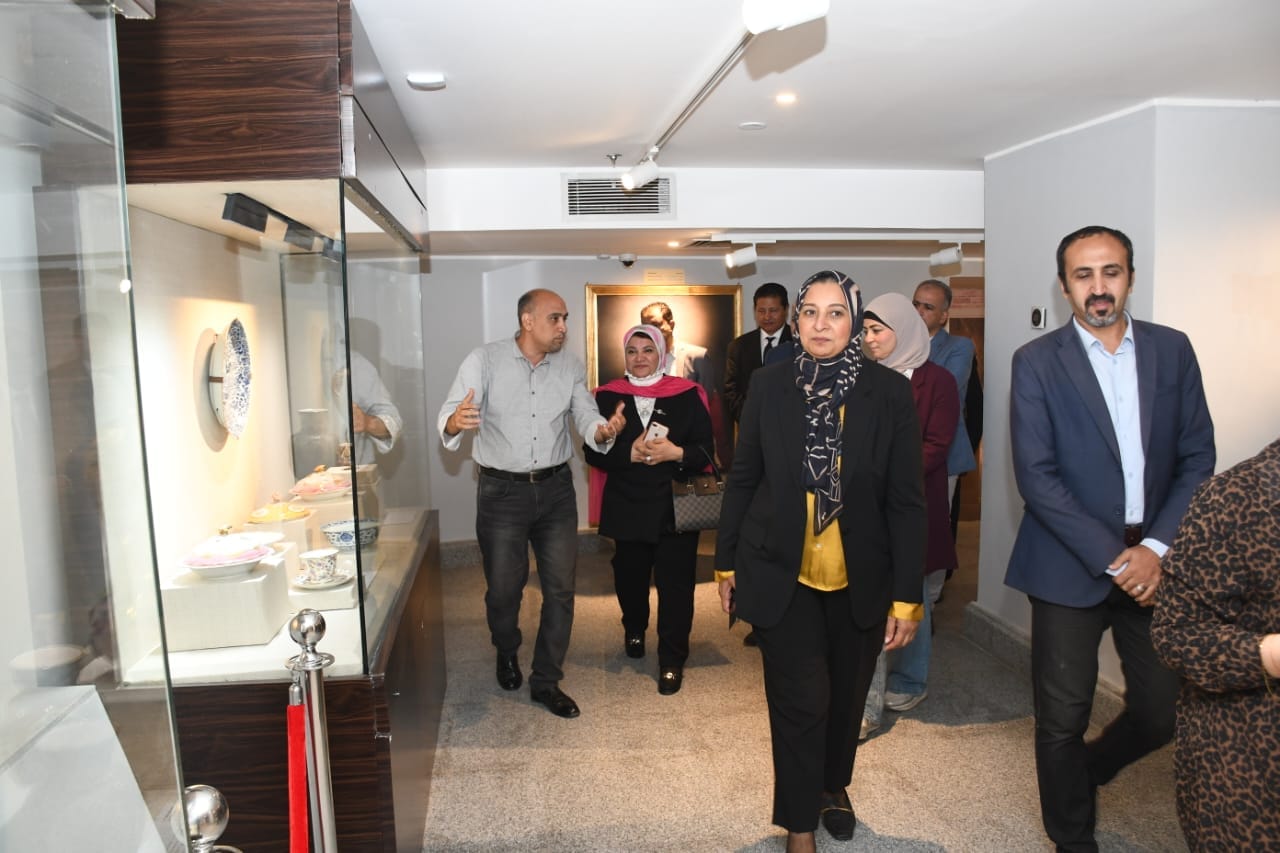 |
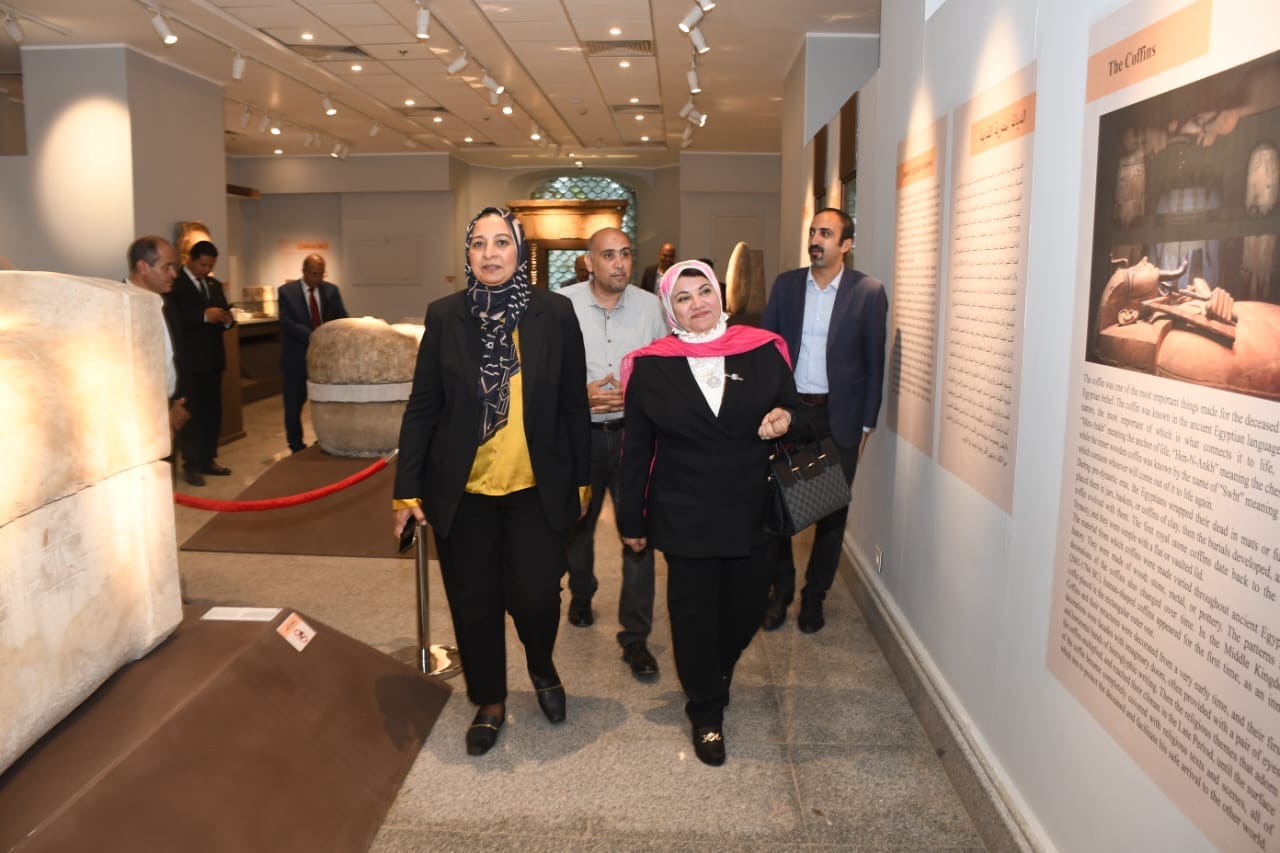 |


.svg)
